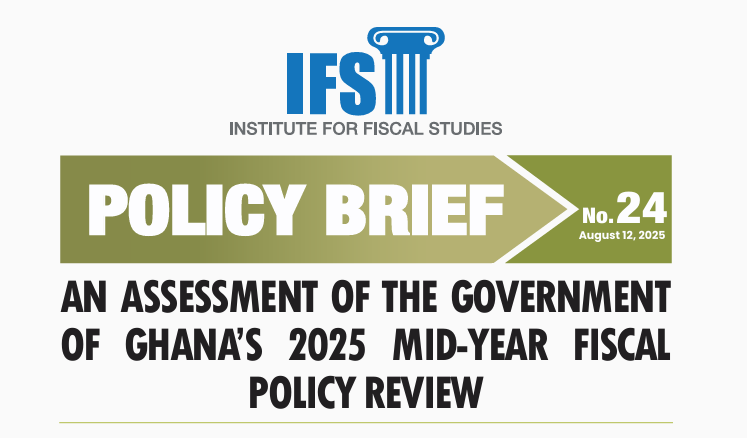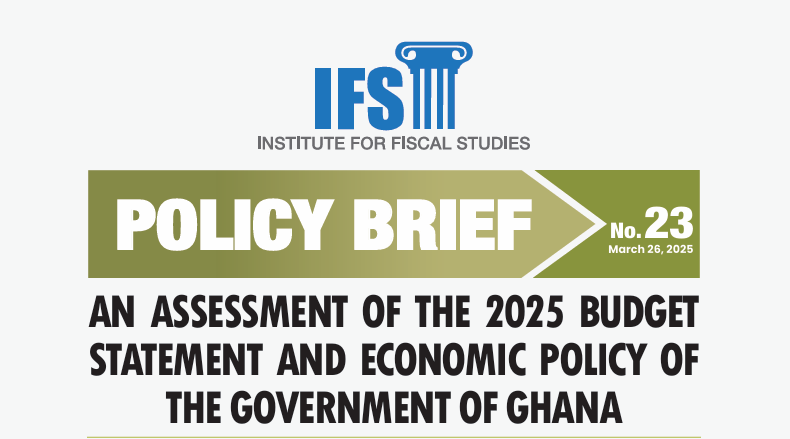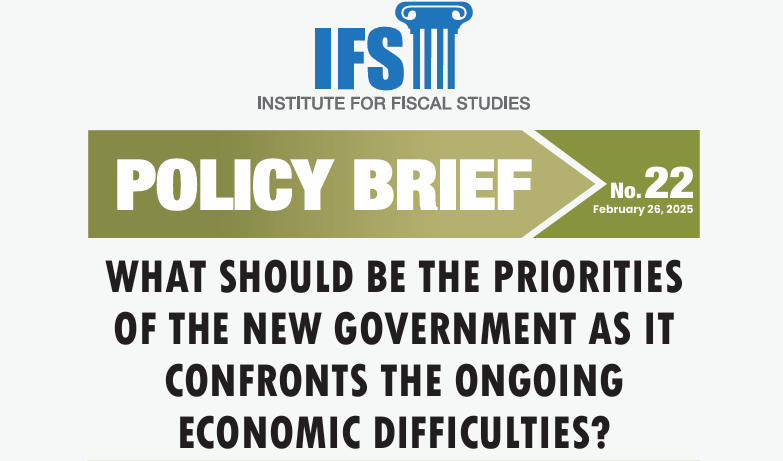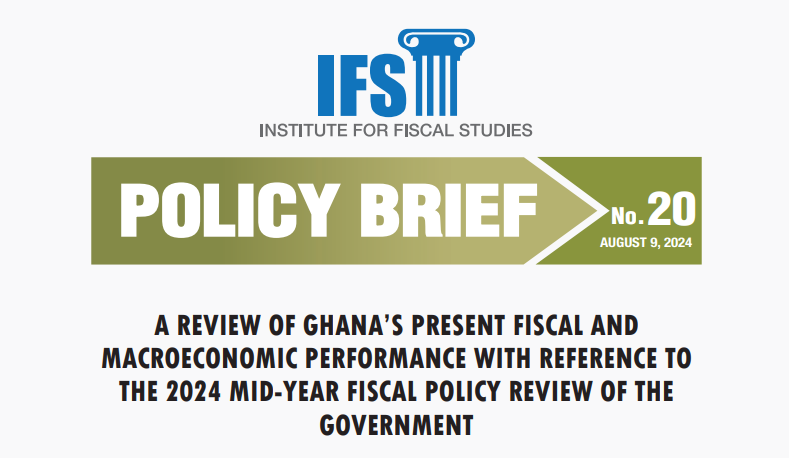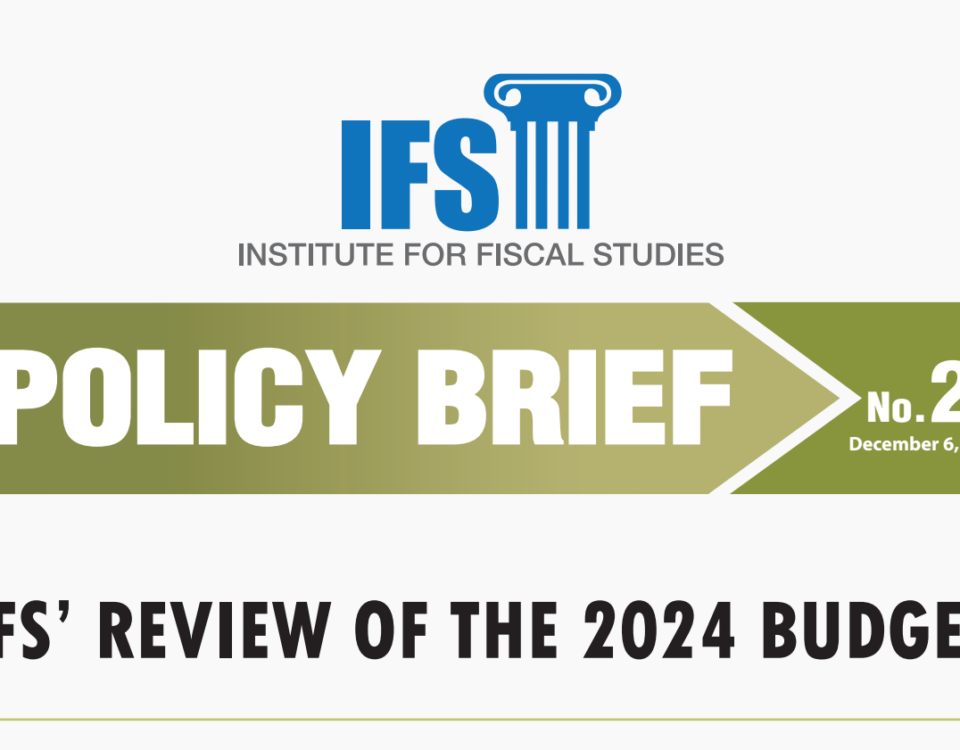Latest Publications
September 1, 2025
When the government presented the 2025 mid-year fiscal policy review on July 24, it had much to celebrate from the macroeconomic perspective. Real GDP growth, inflation, and the cedi exchange rate had seen significant improvements. Ghana’s external account position had also improved considerably. For the most part, information on these macroeconomic developments was well known before the government presented the mid-year review. In contrast, much less was known about the nature of the execution of the 2025 budget during the first half of the year, especially as the budget had introduced many new policy initiatives. Therefore, the Institute for Fiscal […]
May 12, 2025
On March 11, 2025, the new National Democratic Congress (NDC) government presented its first budget statement, outlining its policy priorities and objectives for the next four years. As pointed out in IFS’ pre-budget paper, “What Should Be the Priorities of the New Government as It Confronts the Ongoing Economic Difficulties?”, the budget was presented against the backdrop of fiscal and macroeconomic difficulties Ghana is currently grappling with. These include debt challenges, high inflation, high exchange rate instability, and low growth. In his budget speech to Parliament, Minister of Finance Dr. Cassiel Ato Forson acknowledged the economic difficulties and pledged to […]
May 12, 2025
Ghana’s economic health has been very poor in recent years. Over the past three years, the country has suffered debt crisis, macroeconomic instability, and low growth, which have led to declining living standards, worsening unemployment, and disaffection with the government. This was caused by an extended period of sharp debt buildups and large debt service payments, which eventually led, in early 2022, to downgrades in Ghana’s credit ratings and thus loss of access to the international bond market. Since the past administration started implementing the International Monetary Fund (IMF)-supported program in 2023 to address the crisis, the extraordinarily harsh conditions […]
August 18, 2024
Ghana’s recent macroeconomic state has been dire. In the first quarter of 2022, the country suffered a series of international credit-rating downgrades, prompted by sharply deteriorating fiscal outcomes. This shut Ghana out of the international bond market, hitherto a key source of budget and balance-of-payments financing. Following the loss of bond market access, the balance of payments erupted into crisis. From December 2021 to June 2022, the overall balance of payments position worsened from a US$500 million surplus to a US$2.5 billion deficit, thus indicating a deterioration of US$3.0 billion in just six months. This caused the stock of foreign […]
January 5, 2024
In mid-November, the government tabled the 2024 budget statement within the context of the three-year IMF program that Ghana formally adopted in May 2023, which seeks to address the present fiscal and macroeconomic crises. Since the program’s adoption, macroeconomic conditions have seen some improvement, with year-on-year inflation declining to 35.2% in October 2023 after peaking at 54.1% in December 2022. The volatility of the cedi depreciation against foreign currencies has also eased, while some calm has returned to the financial sector after the government completed its domestic debt restructuring exercise. Nevertheless, the economy is not out of the woods, as […]
- AN ASSESSMENT OF THE GOVERNMENT OF GHANA’S 2025 MID-YEAR FISCAL POLICYREVIEW
- AN ASSESSMENT OF THE 2025 BUDGETSTATEMENT AND ECONOMIC POLICY OFTHE GOVERNMENT OF GHANA
- WHAT SHOULD BE THE PRIORITIESOF THE NEW GOVERNMENT AS ITCONFRONTS THE ON GOING ECONOMIC DIFFICULTIES?
- POLICY BRIEF No. 20 – A REVIEW OF GHANA’S PRESENT FISCAL AND MACROECONOMIC PERFORMANCE WITH REFERENCE TO THE 2024 MID YEAR FISCAL POLICY REVIEW OF THE GOVERNMENT
- POLICY BRIEF No. 21 – IFS’ REVIEW OF THE 2024 BUDGET


